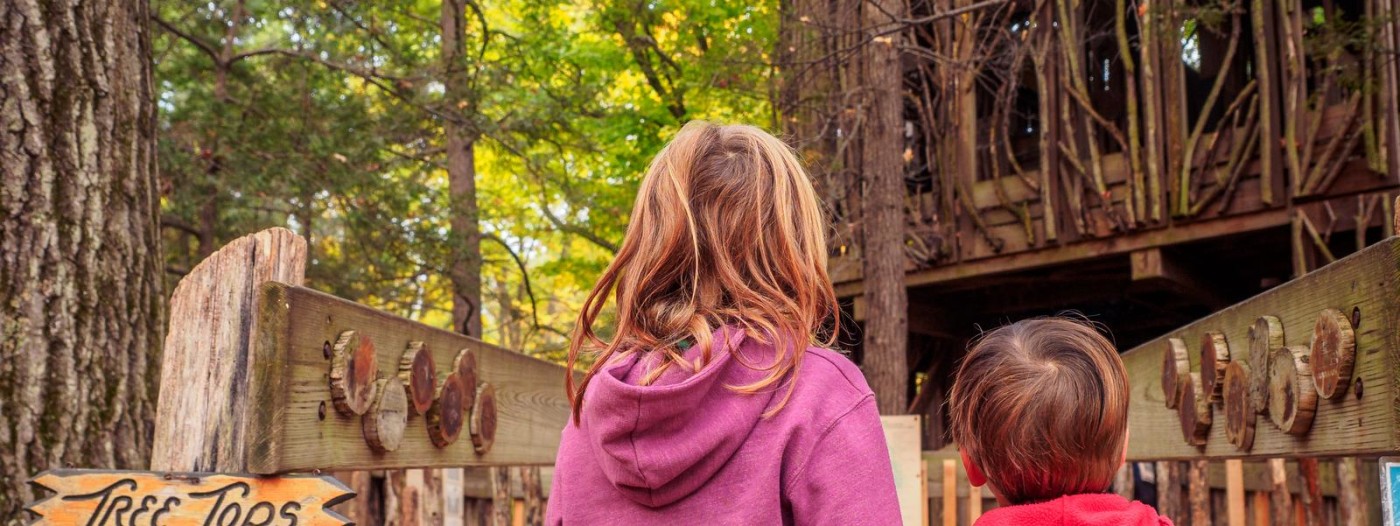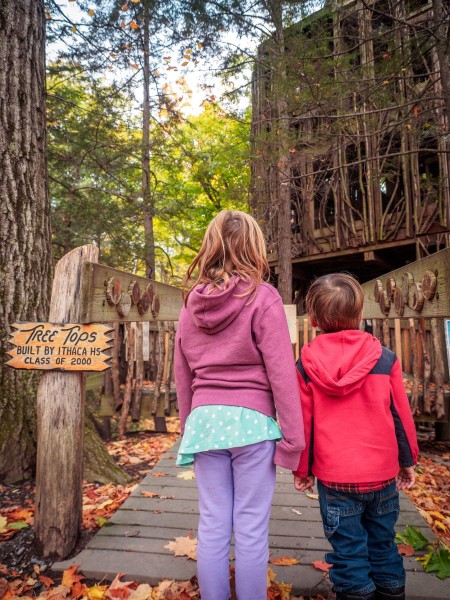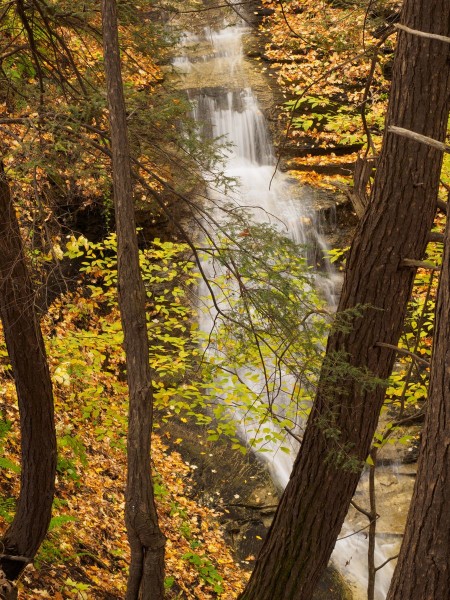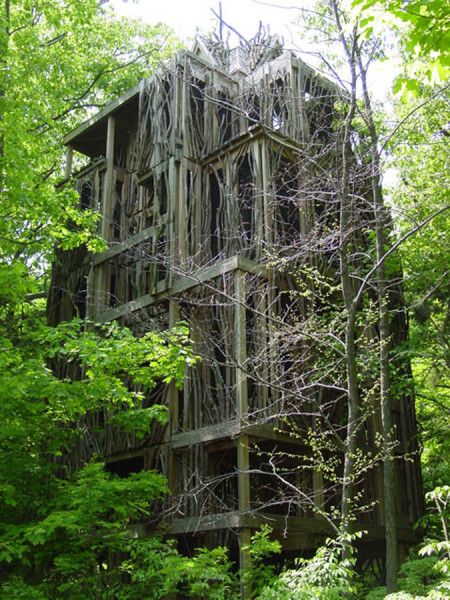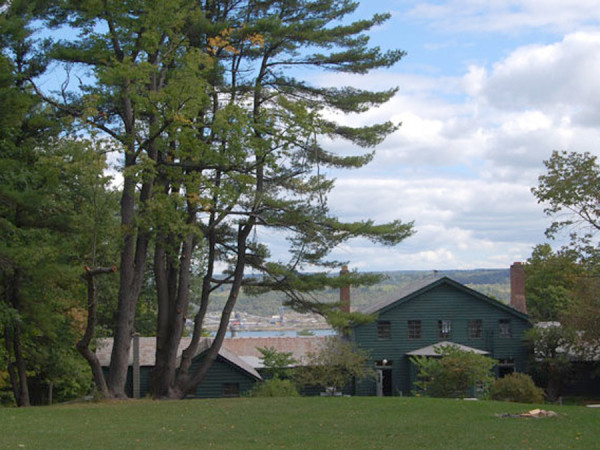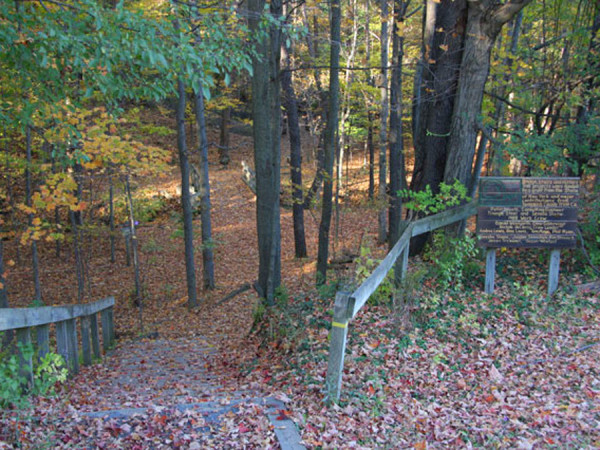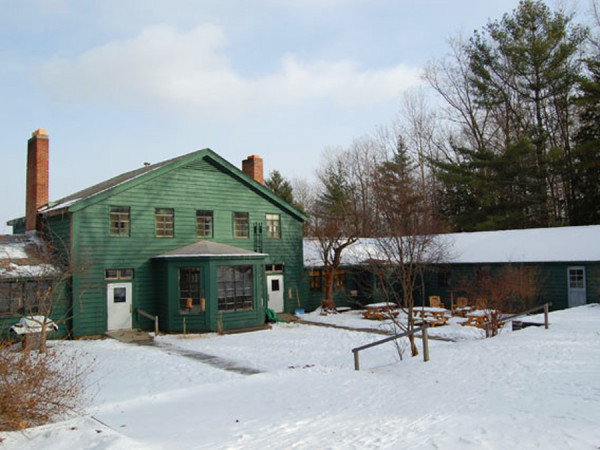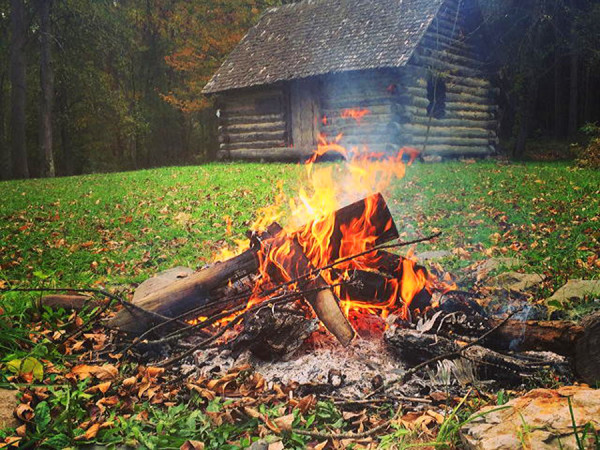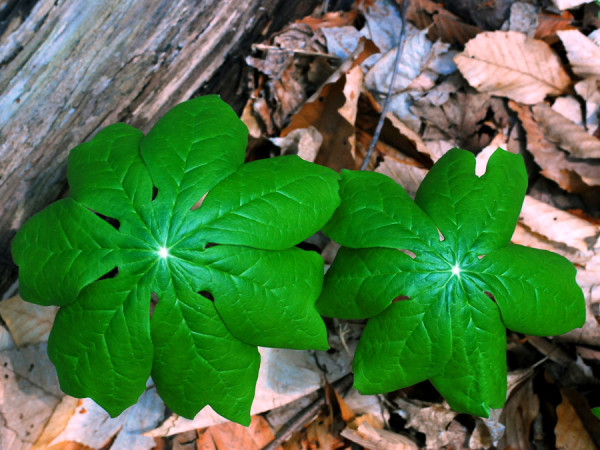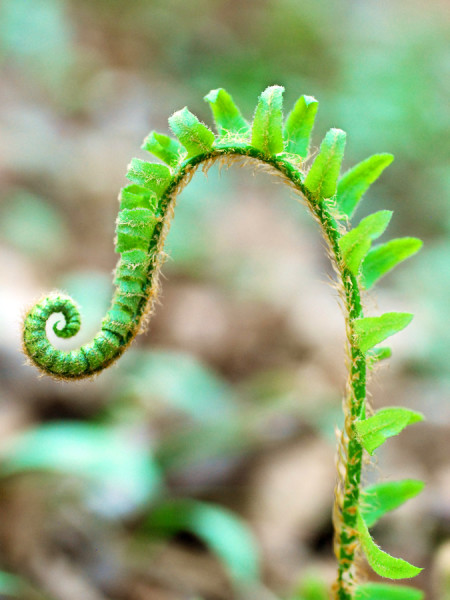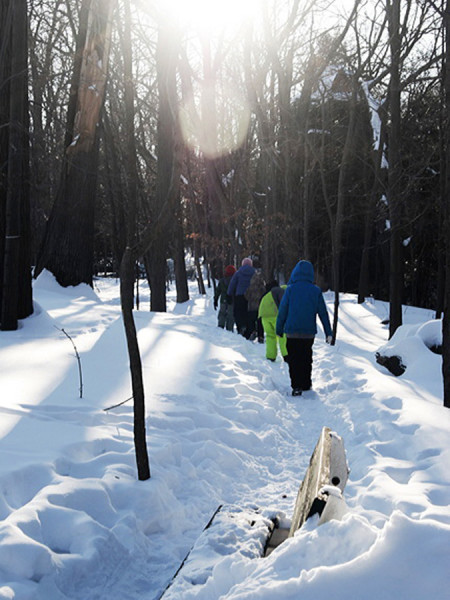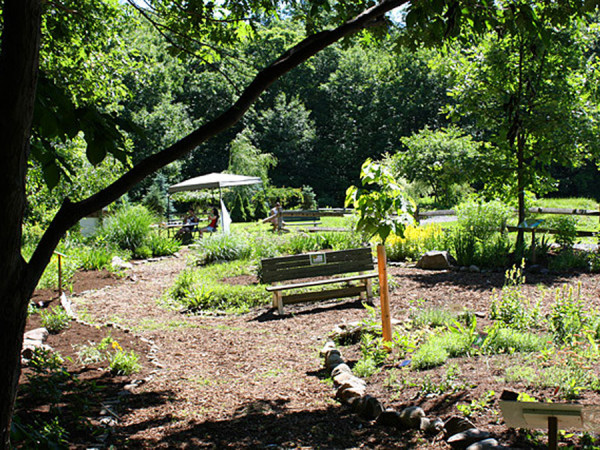The Cayuga Nature Center acts as a gateway into the natural world for families and young kids. Open dawn to dusk year-round, visitors can explore more than 3 miles of easy trails with various loops that cross open fields, wooded glens, and stream beds on the 100-acre property.
The loops are fairly short and transition from one habitat to another fairly quickly so hikers will have plenty of new things to focus on throughout. Trails leading to and near the TreeTops tree house and Denison Falls are the shortest and most popular while trips along the outskirts, the Wilderness Loop, and those in the open fields, are the longest and offer more solitude.
Built by the Ithaca High School Class of 2000, TreeTops is six stories tall and features numerous cubby holes, cargo nets, stairs, and ladders for kids to climb, crawl through, and explore. The structure is fully enclosed utilizing natural forms, such as planks with natural edges, logs, and forked branches that blend in with the forest and mask the necessary safety features — e.g., wire mesh to prevent objects and children from falling out. Explorers both young and old can climb the treehouse, but for those who just want to relax and watch, there are nearby benches to pause while the explorers romp about. The treehouse is a short distance north of the nature center, just past the Butterfly Garden, and is perched above Denison Falls. The falls and its gorge add the quintessential Ithaca stamp on the experience, but the stream feeding it is seasonal so spring and periods following heavy rain are the best times to see the falls.

